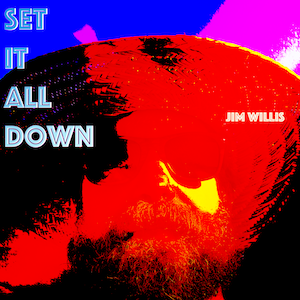[Update, Jan 2026 – this approach was garbage. I installed the iCloud3 add on and have had much better luck. This is a bit more of a challenge to setup but WAY more reliable/flexible than the approach below.]
I have a few home assistant automations that would really benefit from knowing who is home, who isn’t, etc. My family members never open the HA app on their phones. I mean, why should they? Anyway, the Home Assistant mobile app doesn’t reliably track location when users never open the app. This guide that Claude AI wrote for me optimizes location tracking for phones that remain closed.
iOS Settings (Configure on Each Phone)
1. Location Permissions ⭐ CRITICAL
- Settings → Home Assistant → Location → “Always” (NOT “While Using”)
- Settings → Home Assistant → “Precise Location” → ON
2. Background App Refresh
- Settings → General → Background App Refresh → ON (system-wide)
- Settings → Home Assistant → Background App Refresh → ON
3. Notifications (Required for Background Activity)
- Settings → Home Assistant → Notifications → ALLOW
- Even if ignored, this keeps the app active in the background
4. Cellular Data
- Settings → Home Assistant → Cellular Data → ON
- Ensures tracking works away from WiFi
5. Low Power Mode (Known Issue)
- When enabled, iOS kills background location updates
- No fix, but be aware this affects tracking
Home Assistant App Settings (Configure Once)
Location Tracking
- Open HA App → Settings → Companion App → Location Sensors
- Enable “Zone Based Tracking” (triggers on zone enter/exit)
- Enable “Background Location Updates”
- Set Update Interval to default (or customize)
Recommended Sensors to Enable
- ✅ Zone Sensors – Essential for home/away detection
- ✅ Activity Sensor – Detects movement vs stationary
- ✅ Connection Type – WiFi vs cellular helps determine location
- ✅ SSID Sensor – Reports WiFi network name
Home Assistant Automations (Server-Side)
1. Periodic Location Update Requests
Sends silent notification every 15 minutes to request location update:
Sends silent notification every 15 minutes to request location update:
```yaml
- id: 'location_update_REPLACE_FAMILY_MEMBER_NAME'
alias: 'Location: Periodic Update - REPLACE_FAMILY_MEMBER_NAME'
description: 'Sends periodic location update request'
trigger:
- platform: time_pattern
minutes: '/15'
conditions: []
actions:
- service: notify.mobile_app_REPLACE_FAMILY_MEMBER_NAME_iphone
data:
message: "request_location_update"
mode: single
- id: 'location_update_REPLACE_FAMILY_MEMBER_NAME'
alias: 'Location: Periodic Update - REPLACE_FAMILY_MEMBER_NAME'
description: 'Sends periodic location update request'
trigger:
- platform: time_pattern
minutes: '/15'
conditions: []
actions:
- service: notify.mobile_app_REPLACE_FAMILY_MEMBER_NAME
data:
message: "request_location_update"
mode: single
```
2. WiFi-Based Home Detection (Backup Method)
Reliable backup using home WiFi connection:
``yaml
# Add to template.yaml
- binary_sensor:
- name: "NAME Home (WiFi Backup)"
unique_id: NAME_home_wifi_backup
state: >
{{ is_state('sensor.NAME_iphone_connection_type', 'wifi')
and is_state('sensor.NAME_iphone_ssid', 'YourHomeWiFiName') }}
device_class: occupancy
icon: mdi:wifi-check
```
**Note:** Replace `'YourHomeWiFiName'` with your actual WiFi SSID.
Note: Replace 'YourHomeWiFiName' with your actual WiFi SSID.
3. Combined Presence Detection
Use both location and WiFi for maximum reliability:
Use both location and WiFi for maximum reliability:
```yaml
- binary_sensor:
- name: "NAME Home (Combined)"
unique_id: NAME_home_combined
state: >
{{ is_state('person.NAME', 'home')
or is_state('binary_sensor.NAME_home_wifi_backup', 'on') }}
device_class: occupancy
```
iOS Shortcuts Automation ⭐ SECRET WEAPON
Create iOS Shortcuts that automatically update HA when entering/leaving home.
Setup Instructions:
Automation 1: When Leaving Home
- Open Shortcuts app on iPhone
- Tap Automation tab (bottom)
- Tap + → Create Personal Automation
- Choose Leave → Select Home
- Tap Add Action → Search “Home Assistant”
- Choose “Update Sensors”
- Turn OFF “Ask Before Running” ⭐ CRITICAL
- Tap Done
Automation 2: When Arriving Home
- Same as above but choose Arrive at Home
- Add “Update Sensors” action
- Turn OFF “Ask Before Running”
Automation 3: Daily Updates (Optional)
- Create Personal Automation → Time of Day
- Set times: 8:00 AM, 12:00 PM, 6:00 PM, 10:00 PM
- Add “Update Sensors” action
- Turn OFF “Ask Before Running”
Home Zone Configuration
Ensure proper home zone settings:
- Settings → Areas, Labels, & Zones → Home
- Radius: 100-200 meters
- Too small = missed triggers when GPS drifts
- Too large = inaccurate arrival/departure detection
- 100m is usually ideal for residential areas
5-Minute Setup Checklist for Family Members
“Setup Once, Never Open HA App Again”
- [ ] Settings → Home Assistant → Location → “Always”
- [ ] Settings → Home Assistant → Precise Location → ON
- [ ] Settings → Home Assistant → Background App Refresh → ON
- [ ] Settings → Home Assistant → Notifications → Allow
- [ ] Settings → Home Assistant → Cellular Data → ON
- [ ] Open HA App once → Settings → Location Sensors → Enable all
- [ ] Shortcuts app → Create “Leaving Home” automation (see above)
- [ ] Shortcuts app → Create “Arriving Home” automation (see above)
- [ ] Done! Never need to open HA app again
Troubleshooting
Location Not Updating
- Check Low Power Mode is OFF
- Verify “Always” location permission
- Check HA app hasn’t been offloaded (Settings → General → iPhone Storage)
- Force quit and reopen HA app once
- Check automations are running (Settings → Automations)
WiFi Backup Not Working
- Verify SSID sensor is reporting correct WiFi name
- Check SSID in template matches exactly (case-sensitive)
- Ensure phone is actually connected to WiFi (not cellular)
iOS Shortcuts Not Running
- Open Shortcuts app → Automation tab
- Verify automations are enabled (toggle should be blue)
- Check “Ask Before Running” is turned OFF
- Run automation manually once to test
Option 3: OwnTracks
- Self-hosted MQTT-based tracking
- Complete privacy/control
- Requires MQTT broker setup
- Good for privacy-conscious users
Best Practices
- Use Multiple Detection Methods
- Combine GPS (person entity) + WiFi (backup sensor)
- More reliable than single source
- Set Reasonable Update Intervals
- Every 15 minutes is good balance
- Too frequent = battery drain
- Too infrequent = missed events
- Test After Setup
- Have family member leave/return home
- Watch HA logs for updates
- Verify automations trigger correctly
- Monitor Battery Impact
- Check battery usage after 1 week
- If excessive, reduce update frequency
- iOS Shortcuts use minimal battery
Notes
- This configuration works best when all iOS settings are properly configured
- iOS Shortcuts automation is the most reliable “set and forget” method
- WiFi backup is excellent for detecting home presence
- Periodic update requests keep the app active without user interaction
- Low Power Mode will always impact background location – this is an iOS limitation
Last Updated: 2025-12-04





